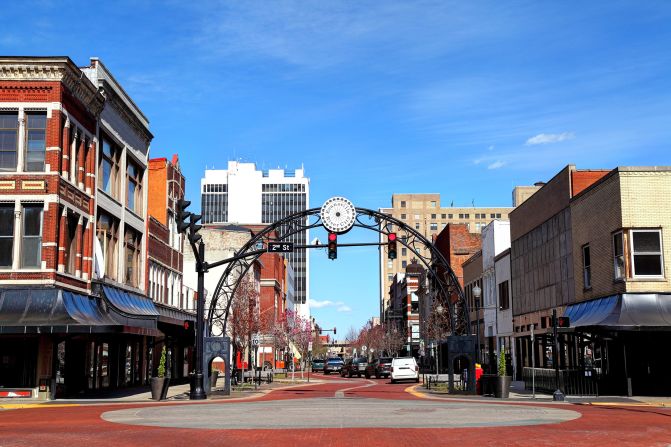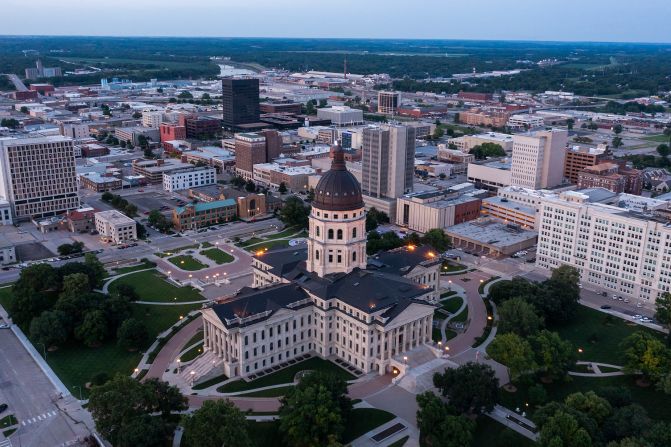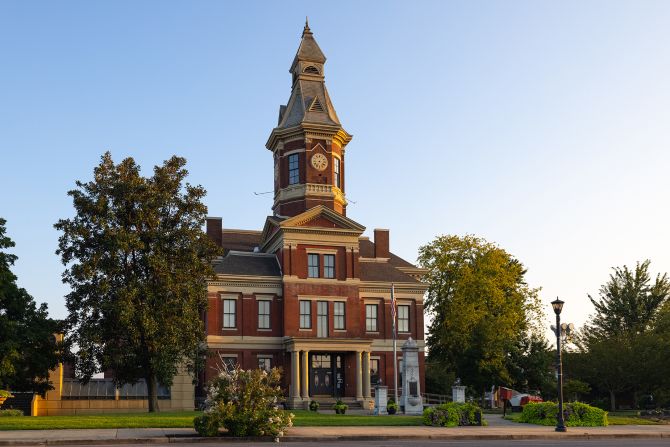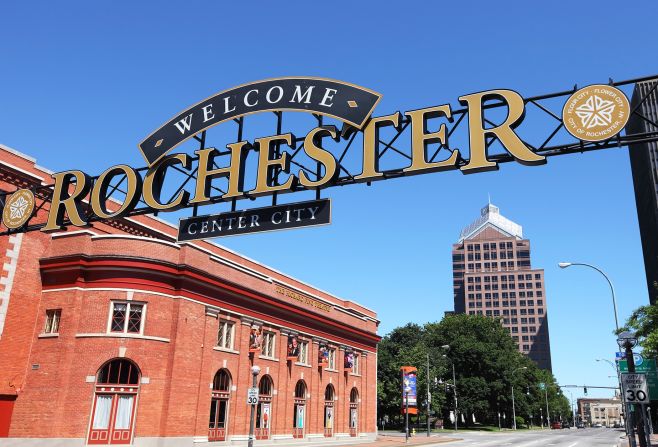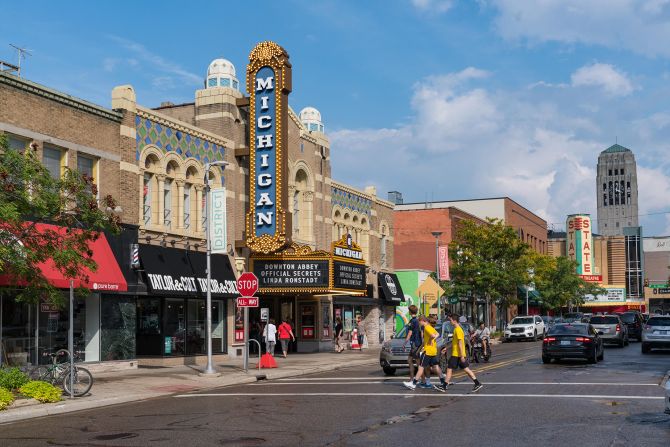Life in the United States is pretty expensive these days. Between seemingly eternal inflation, high interest rates, and the exorbitant cost of healthcare, many Americans are looking for ways to keep more hard-earned dollars in their bank account.
One option gaining traction? Relocation packages offered by some US smaller cities and towns to attract new residents.
Also known as worker relocation incentive programs, these cash carrots are available across the country but share the same general premise: lure workers who have geographic flexibility with financial incentives and other perks, such as free gym memberships, co-working facilities, and even dinner with the mayor. A couple of the most lucrative offers hit five figures, and some also offer homebuyer incentives.
According to MakeMyMove.com, an online marketplace connecting remote workers with locations making offers around the US, the number of cities offering such incentives has more than doubled in recent years. The pandemic brought about a seismic change in work culture and, in 2023, more than 50,000 people applied for programs across the country through the platform.
However, the pay-to-move concept isn’t popular with everyone. “These programs can sometimes lead to discontent among local residents, who may feel overlooked in favor of new arrivals receiving incentives,” says Kyle Samuels, CEO of Creative Talent Endeavors, a boutique executive search firm based in Charlotte, North Carolina. “This could foster community divisions and potentially increase the cost of living, making it harder for long-term residents. We’ve seen what happens when high-paid tech workers moved to Miami and Austin during the pandemic, dramatically raising prices for locals in various ways.”
Samuels also says he expects such programs to see “diminishing returns” as more companies mandate in-person attendance.
Some worker incentive programs have, in fact, ended altogether, such as the Life Works Here program – launched November 2020 – that attracted remote tech workers to northwest Arkansas with $10,000 and a free bike. And after five years, Vermont wrapped up its relocation incentive program in 2023, which had initially been paying up to $10,000 to qualified workers.
However, there are still plenty of active programs accepting applications, some with generous offers and plenty of extra perks. Here, a few to consider if you’re looking to make a move of your own – and get paid in the process.
Tulsa, Oklahoma
When it launched in 2018, Tulsa Remote became the first program of its kind by offering remote workers and entrepreneurs $10,000 to move to the south-central US city for a year.
Since then, some 2,900 people have been accepted into the program, and as of December 2022, its members had generated nearly $307 million in direct employment income, according to the most recent Tulsa Remote economic impact report. In addition, the program also generated an estimated new sales tax revenue of $2.5 million for Tulsa County and $3.1 million for the state of Oklahoma. “We have also seen a strong multiplier effect of friends and family joining members in Tulsa, with the city gaining three residents for every two Tulsa Remote program participants,” Justin Harlan, managing director of Tulsa Remote, told CNN Travel via email.
Applications are currently open for the next round of Tulsa transplants, and the program aims to be 4,000-members-strong by 2027, according to Harlan. Applicants must be at least 18 years of age, have lived outside of Oklahoma for at least a year prior to applying, and relocate to Tulsa within 12 months of approval.
West Virginia

With five participating communities, Ascend West Virginia is a public-private initiative with an impressive pedigree: Its founders are West Virginia native Brad D. Smith, former CEO of software company Intuit, and his wife Alys.
Now in its third year, the program provides eligible recipients, sometimes known as Ascenders, with a $12,000 cash incentive ($10,000 the first year, an additional $2,000 the second), as well as outdoorsy perks like free passes for rock climbing, ziplining and golf to explore West Virginia’s rugged landscapes, as well as access to free co-working spaces. The full relocation package is valued at more than $20,000, and to date, more than 42,500 applications have been received, according to a spokesperson.
Applicants can choose from a diverse range of Ascend communities, from the small mountain town vibes of the Greenbrier Valley to outdoor adventure galore in the country’s newest national park, New River Gorge – which also is the most recent community to the program – with an impressive 96.5% retention rate across the program. In addition, organizers have submitted a funding request to the state legislature to expand the program – so there could be even more participating communities in the future.
Indiana
Indiana has been one of the most ambitious states when it comes to enticing a new wave of workers with financial relocation packages and perks. Dozens of cities and regions have an incentive package in place, according to MakeMyMove, and as of 2023, some 340 households have relocated to Indiana through the platform.
Hopeful Hoosiers have plenty to choose from for their new home. A package valued at $15,000 in Noblesville, a suburb of Indianapolis, includes a $5,000 relocation grant, a season of free golf at two courses, and coffee with the mayor. In Evansville, meanwhile, qualified applicants can take advantage of a $7,200 incentive that includes $5,000 in cash, museum passes and a one-year membership to the oldest urban old-growth forest in the US.
Topeka, Kansas
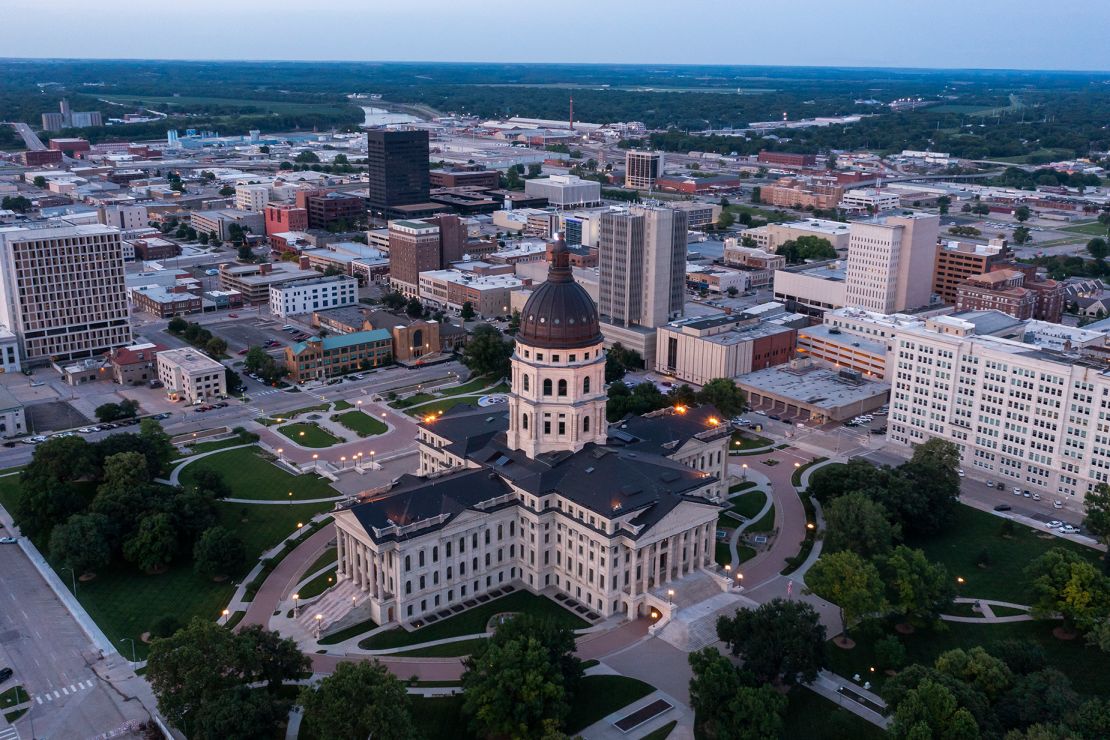
Choose Topeka began in 2019, offering applicants up to $15,000 in incentives via employer match funding. Since then, more than 6,000 people have applied, with nearly 150 lucky newcomers chosen to move to the Sunflower State.
Unlike some incentive programs, Choose Topeka doesn’t just focus on remote workers. Transitioning veterans, people who have recently left military service, and “Boomerangs” – former residents of the Topeka area looking to return to Shawnee County – are all eligible for $5,000 in direct incentives if they accept a job offer in Topeka with a minimum salary of $50,000.
Recipients are required to remain for at least a year. But an impressive 95% of them stay for the long term, according to Robert Ross, senior vice president of marketing and communications with GO Topeka, the economic development agency in Shawnee County that administers the program.
“People love how accessible and friendly our community is,” Ross told CNN Travel via email. “With around 175,000 residents in Topeka, the city is very easy to navigate and recipients quickly learn that ‘Midwest nice’ is a way of life here.”
Kentucky
If you’re considering a move to the Bluegrass State, you have plenty of places to pick from: According to MakeMyMove, there are eight cities and towns currently recruiting for new workers.
The $8,800 package to relocate to Mayfield and Graves County includes $5,000 cash, as well as plenty of other perks (50% off after-school childcare, lunch with the mayor, and a free monthly delivery of eggs, just to name a few). Several cities also include a $2,500 bonus on top of $5,000 cash for workers who bring a spouse who will work locally in healthcare or education.
The Shoals, Alabama

Craving a dose of Southern hospitality for your next life chapter? In an area known as the Shoals, which spans four main cities and two counties across Alabama’s northwestern region, a program called Remote Shoals offers qualified workers up to $10,000.
The program launched in June 2019 and received its fourth round of funding in 2022 for a total of $1 million in investment. As of February 2022, it had received 2,300 applications from all 50 states, as well as several from abroad, with participants coming from 22 different states.
Eligible applicants must be self-employed or a full-time remote employee outside Colbert and Lauderdale counties, make $52,000 or more annually, and relocate to the Shoals area within six months of being selected.
Rochester, New York
Remote workers who aren’t interested in taking a bite of the Big Apple can look to Rochester, whose Greater ROC Remote program offers $10,000 in grants and incentives (plus another $9,000 for home-buying grants).
The program, which was modeled after Tulsa’s program and others, welcomed its first recipients in April 2022. The goal is to bring in about 600 participants (not including family members) over three years. To be eligible, applicants must live more than 300 miles from downtown Rochester or in any other state except New York, have a fully remote job, and be 18 years or older.
Applicants who have interviewed also are eligible to visit Rochester in person, with expenses up to $500 (and $750 for a couple) reimbursable.
Alaska

The Last Frontier is the most sparsely populated state in the US, with the third-smallest population, hovering at around 700,000 for the last decade. But instead of dangling cash incentives to potential residents out of state, Alaska instead provides those already within its borders with a yearly sum from its Permanent Fund Dividend, or PFD.
The amount is variable every year, depending on what the government provides. But in 2022, every resident received $3,284 – the highest amount so far under the program. However, in 2023 and 2024 that figure dropped to $1,312.
To be eligible for the PFD, you must live in Alaska for a whole calendar year before applying. In addition, you should plan to remain there indefinitely. Other qualifying criteria also apply. Applications are open between January 1 and March 31.
Michigan
Prospective college students or recent grads in the Great Lakes State, this one’s for you: Approximately 350 scholarships and internships are up for grabs in The Michigander Scholars program, which is designed to attract talent for the state’s burgeoning electric vehicle, mobility and semiconductor industries.
The year-old program awards scholarships ranging from $5,000 to $10,000 to qualifying recipients who complete an internship and/or accept a full-time position in industries including computing, electronics, software development, or process engineering. There are some stipulations, of course: The job or internship must come through a participating company, and recipients must commit to staying in Michigan for at least 12 months.
In addition, the program is “curated,” explains Kerry Ebersole Singh, chief talent solutions and engagement officer at Michigan Economic Development Corporation, which runs the program. After being selected to join a “cohort” of qualified candidates, “then they are brought into special opportunities to do meet and greets with employers that then lead to either an internship opportunity and or a job opportunity.”
So far, the program has awarded 62 scholarships, with 521 students currently participating in the cohort. The current initial phase will award up to 350 scholarships, but Ebersole Singh says the program is growing.
“We’re only looking at ways to strategically expand the program, whether that is opening up more opportunities through our employers and these scholarships for out-of-state students or out-of-state schools or … directly tying this to homeownership and other [incentives],” she tells CNN. “So, I definitely foresee us looking at how to grow this in strategic areas versus winding it down at this point.”


